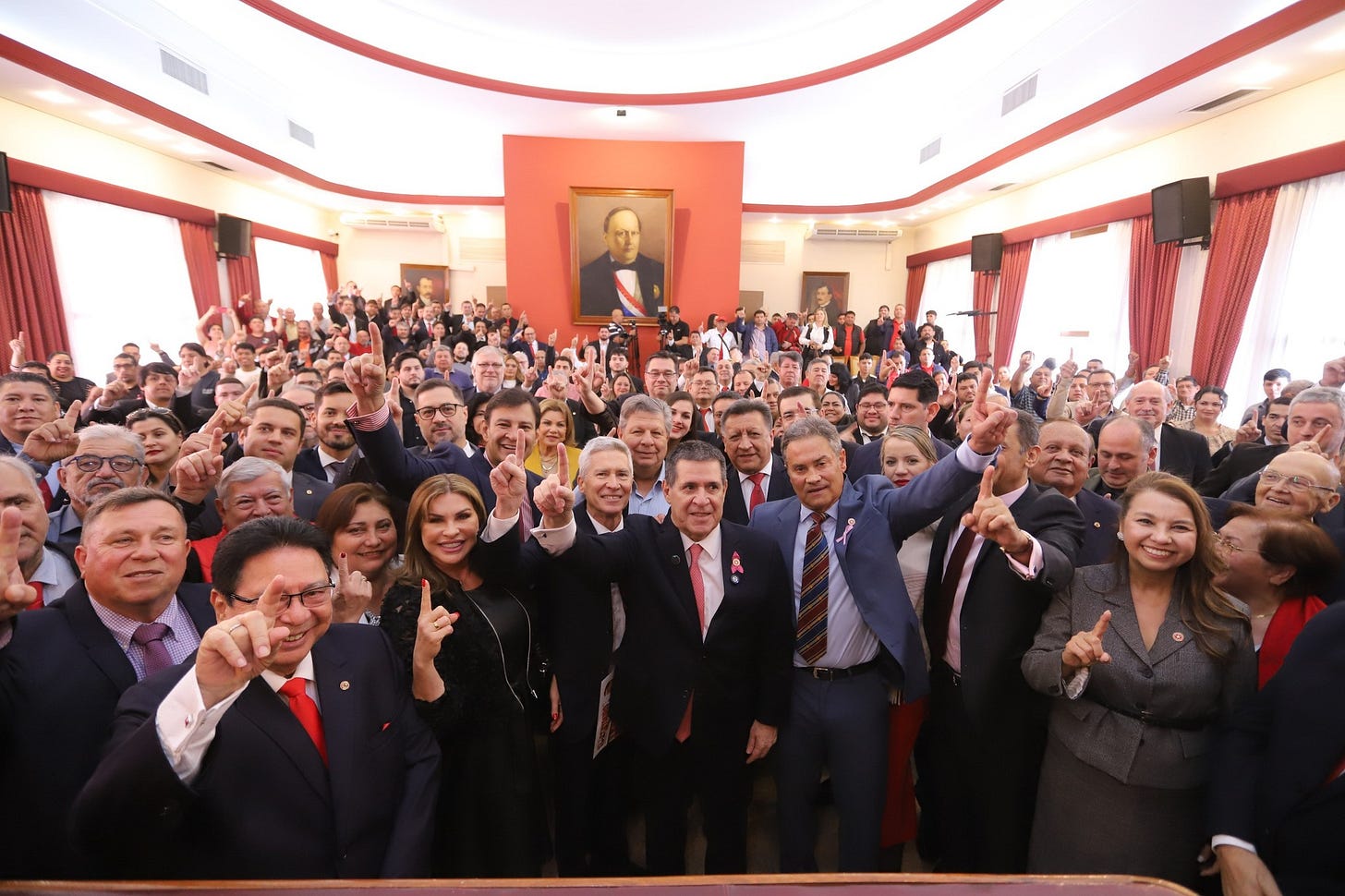Horacio Cartes Sanctions Scrapped
The Weekly Post | 13.10.25

TOP STORY
Cartes off the hook
The United States has dropped its sanctions on Horacio Cartes, with a spokesperson telling the Post they “were no longer required to incentivize changes in behaviour, and therefore not in the foreign policy and national security of the United States.” In 2022, the State Department imposed a travel ban on the powerful former president, citing “significant” acts of corruption. In January 2023, the Treasury blacklisted Cartes and his cigarette manufacturer Tabesa for an alleged mass bribery scheme involving sitting senators, Colorado Party members, and Lebanese militant group Hezbollah.
But last Monday, Cartes’s name was removed from the OFAC list. The visa restrictions have also been waived. In a statement, Cartes said that “justice has been done”, claimed that his name had been cleared, and thanked the US government and Donald Trump, saying that he would seize the “opportunity to keep serving my country with truth, transparency, and hard work.” President Santiago Peña also hailed the decision and congratulated Cartes.
There is confusion about Washington’s motives. The former president’s lawyers said he had hired a private investigation firm to disprove the allegations. Opposition figures attributed the sharp about-face to a series of pro-US foreign policy decisions, including a deal to receive asylum seekers from the United States. The Post understands that a desire to help Peña — a key US ally — may be at work rather than a specific quid pro quo. Cartes may have cleaned up his paper trail, if not exactly proven his innocence. And a generous contribution to Trump’s 2024 campaign can’t be entirely ruled out.
Cartes’s advisors are divided on whether to seek further revenge against perceived enemies within the Colorado Party, or seek unity ahead of the 2026 local elections; for now the latter camp are winning out. Liberal Party senator Celeste Amarilla said she was “extremely scared” that Cartes — already “drunk on power” — would now seek to change the constitution to run again for president: “The public need to be alert.”
THE PARAGUAY POST ANALYSIS:
The sanctions — and the threat of extradition — have served as a rare check on the ambitions of Cartes. He holds massive sway over Peña, the state machinery, and the ruling Colorado Party, of which he is elected president. But a restructuring of his business empire has enabled him to resist the financial crackdown levied by the Biden administration with little lasting damage.
Cartes’s allies deny he has any designs on re-election. The conservative businessman, 69, can easily call the shots from behind the scenes. But Cartes may yet be convinced that Paraguay needs him in Mburuvicha Róga once more. His previous attempt to change the constitution to seek a second term in 2017 saw congress go up in flames amid fierce protests before the US called on him to back down. Whether Trump’s White House would intervene now is unclear.
You’re reading The Weekly Post, a Monday briefing on Paraguay.
Want to keep reading? Get your free trial here:
POLITICS
Muni muckraking
It’s just under a year until municipal elections in October 2026, but the opposition is still wrangling over who will be the standard-bearer to try and take Asunción City Hall from the Colorados. In April, leading figures – including the centrist Soledad Núñez, soft-left congresswoman Johanna Ortega (País Solidario), Liberal Party middleweight Agustín Saguier and Alvaro Grau of the conservative Patria Querida – agreed to field a united candidate under the banner Unidos por Asunción, but there are now reports of a rift on how to proceed.
Keep reading with a 7-day free trial
Subscribe to The Paraguay Post to keep reading this post and get 7 days of free access to the full post archives.


